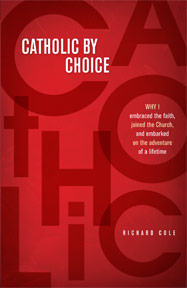Our favorite Christmas stories often revolve around death, unhappiness, and the possibility of a painful, even tragic, loss. This is odd since we also think of Christmas as “merry,” a season of bright lights and jolly good cheer. But in their darkness, these stories tell us something important about Christmas and how we can prepare, through Advent, for the coming of Our Lord.
Christmas tales can be, in fact, pretty grim. In Dicken’s “A Christmas Carol,” Scrooge sees his life as three different kinds of death—past, present, and a possible future, complete with his own funeral, horribly cold and lonely. In the movie “It’s a Wonderful Life,” George Bailey literally stands on the brink of suicide, on a snowy bridge in December, staring down at the black waters where he once saved his brother from drowning. In “Miracle on 34th Street,” little Natalie Wood loses her faith in Santa Claus. In “White Christmas,” the warmhearted General Waverly is in full danger of losing his country inn and all his life savings to boot.
The theme of loss is found in children’s books as well, with a Grinch who steals Christmas, with “Christmas Lost & Christmas Found,” and with a little boy in “The Polar Express” who is heartbroken when he loses the reindeer bell that Santa gave him, the “first gift of Christmas.”
None of these stories end in tragedy. They take us into the darkness and sometimes to the very brink, but they always bring us back. They have a double movement, turning and then returning. Both darkness and light are necessary for the plot, and we cannot understand the season without passing through a quiet darkness—including the darkness inside us—that leads to Christmas.
This is why Advent makes all the sense in the world. Advent helps us to slow down and ease into the darkness. Like Lent and Good Friday, Advent reminds us that Christianity teaches the deep wisdom of Lost and Found, that as human beings, we cannot appreciate, in fact, cannot even understand any gift that we have not lost or been in danger of losing.
How many Christmases have gone past us without understanding? How many times have we ignored or given slight notice to the quiet darkness of Advent? It’s a good thing that Christmas comes every year. Like Scrooge and George Bailey, we, too, get another chance. But our Christmas stories also remind us that there’s always a catch—we have to believe. And with this belief comes understanding that Christmas is a brilliant miracle, a gift from God, even at the darkest time of the year.

